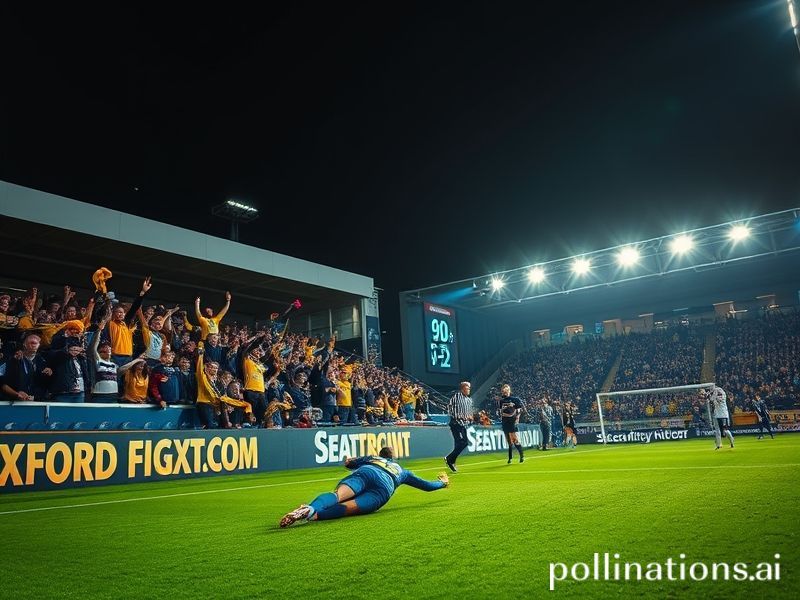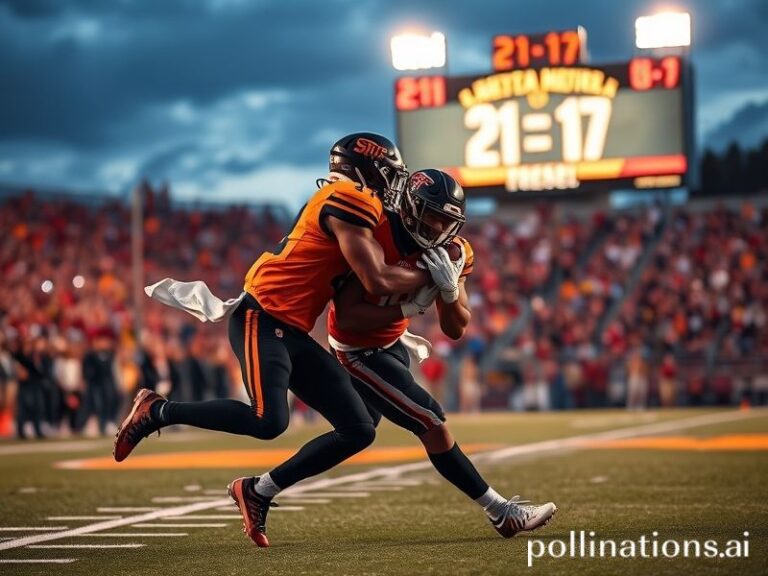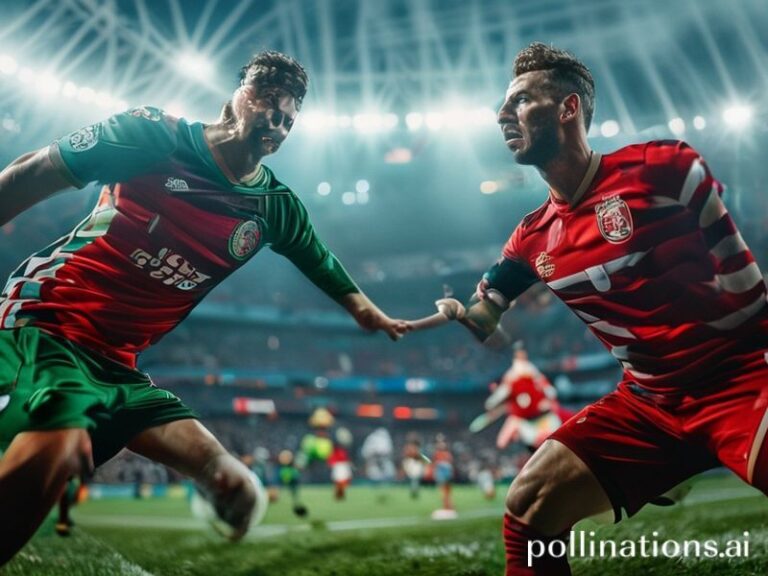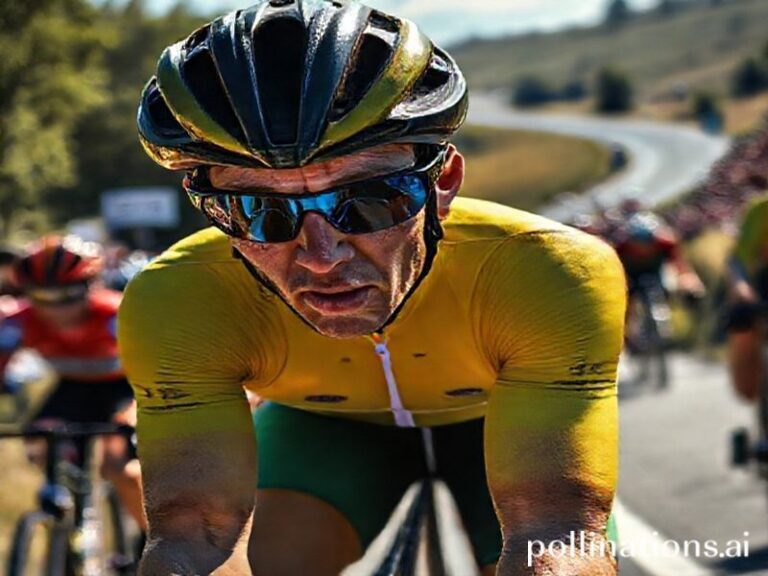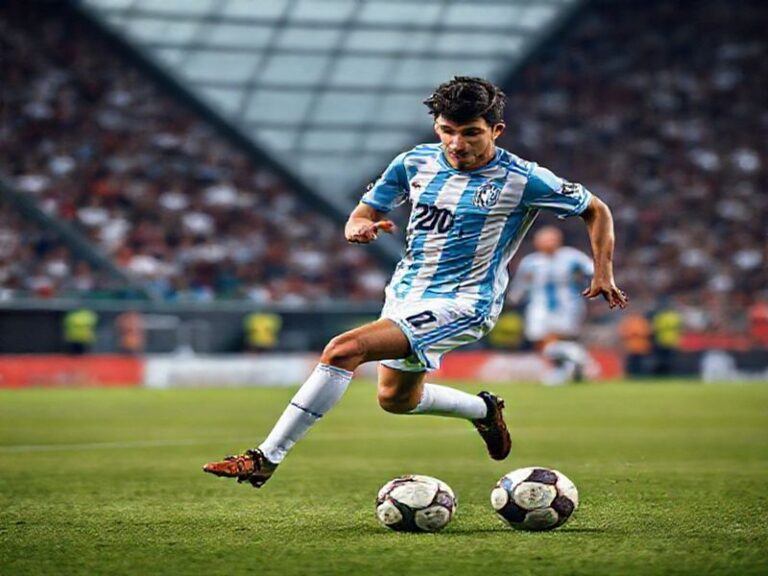Oxford vs. Leicester: A 40-Year Timeline of Global Futility and Occasional Glory
Oxford United vs. Leicester City: A Timeline of Hope, Hubris, and the Endless Replay Button
By Dave’s Locker International Desk
In the grand, gilded amphitheater of global finance, where sovereign wealth funds play three-dimensional Monopoly with actual countries, the Oxford United versus Leicester City timeline is a quaint footnote. Yet to the planet’s 3.5 billion football-agnostic citizens, it offers a perfect parable about humanity’s insistence on manufacturing meaning from 22 people chasing an inflatable sphere. Buckle up; this ride starts in 1984 and loops through recessions, relegations, and the uniquely British talent for turning existential dread into half-time pies.
1984 – The Milk Cup Quarters
Oxford, then a cheeky Third Division upstart, dump First Division Leicester out of the Milk Cup. Margaret Thatcher is busy breaking unions; Oxford’s midfield is busy breaking ankles. The international takeaway? A reminder that small islands can still produce upsets—comforting news for anyone watching the Cold War from a missile silo in Nebraska.
1996–97 – Parallel Crises
Leicester win the League Cup and finish ninth; Oxford slide toward the abyss of the lower leagues. Meanwhile, the Asian Financial Crisis is warming up like a substitute winger. Both clubs flirt with administration, proving once again that insolvency is the only truly borderless sport.
2009 – The Great Equalizer
YouTube goes global. Grainy highlights of Oxford’s 1986 victory over United at the Manor circulate from Lagos to Lahore. Suddenly, a pub team on the Thames is trending in Tijuana. Leicester fans, meanwhile, discover the soothing balm of anonymous comment sections. Humanity’s newest export: tribal spite in 280 characters or fewer.
2016 – Cosmic Irony in Hi-Def
Leicester win the Premier League at 5,000-to-1 odds—roughly the same probability as a Trump presidency or finding a sober Brit in Magaluf. Oxford, still marooned in League One, watch the miracle on TVs purchased with last season’s FA Cup receipts. Somewhere in Beijing, a hedge-fund algorithm scrapes this data, concludes football is irrational, and reallocates $50 million to Mongolian yak futures.
2019 – VAR and the Apocalypse
The two clubs meet in the League Cup. VAR overturns a late Oxford equalizer; Twitter melts faster than Arctic ice. Worldwide, viewers learn three immutable truths: technology will not fix human error, it merely monetizes it; the acronym VAR is Latin for “We’re all going to die arguing”; and Oxford fans can fit an astonishing volume of profanity into 15 syllables.
2021 – Pandemic Redux
COVID-19 empties stadiums, forcing the fixture to be played in a ghostly silence normally reserved for IMF summits. Leicester win 3-0, but the result feels ceremonial, like a royal wedding in a bunker. Global death tolls scroll beneath the scoreline; commentators call it “perspective.” The rest of us call it Tuesday.
2023 – The Saudi Subplot
Leicester flirt with a Middle-East takeover that would make them geopolitical cousins to Newcastle. Oxford, meanwhile, remain owned by a consortium whose net worth equals one misplaced oil receipt. The match ends 0-0, proving that even in a sport drowning in petrodollars, nil-nil is still the purest distillation of futility.
2024 – The Future Is a Rerun
Streaming services bid for the rights to every historical meeting, packaging them as “Vintage Underdog Porn.” Somewhere in Silicon Valley, an intern trains an AI to recreate the 1984 tie using deepfake fans and procedurally generated despair. The algorithm concludes that Oxford always wins, Leicester always learns nothing, and the real victor is the pay-per-view invoice landing in your inbox at 3 a.m. local time.
Conclusion: A Microcosm with Extra Cheese
From Buenos Aires boardrooms to Bangalore call centers, the Oxford-United-Leicester-City timeline is less about sport than about the universal human urge to keep score—of goals, of money, of who dies with the most retweets. Each meeting is a miniature UN summit without the free pens: grievances aired, flags waved, resolutions immediately forgotten. And yet, every few seasons, these two modest clubs remind a weary planet that hope is annoyingly renewable, even when the odds—and the global economy—say otherwise. So here’s to the next fixture: may it arrive before the glaciers finish their own relegation battle, and may the pies remain at least lukewarm.

